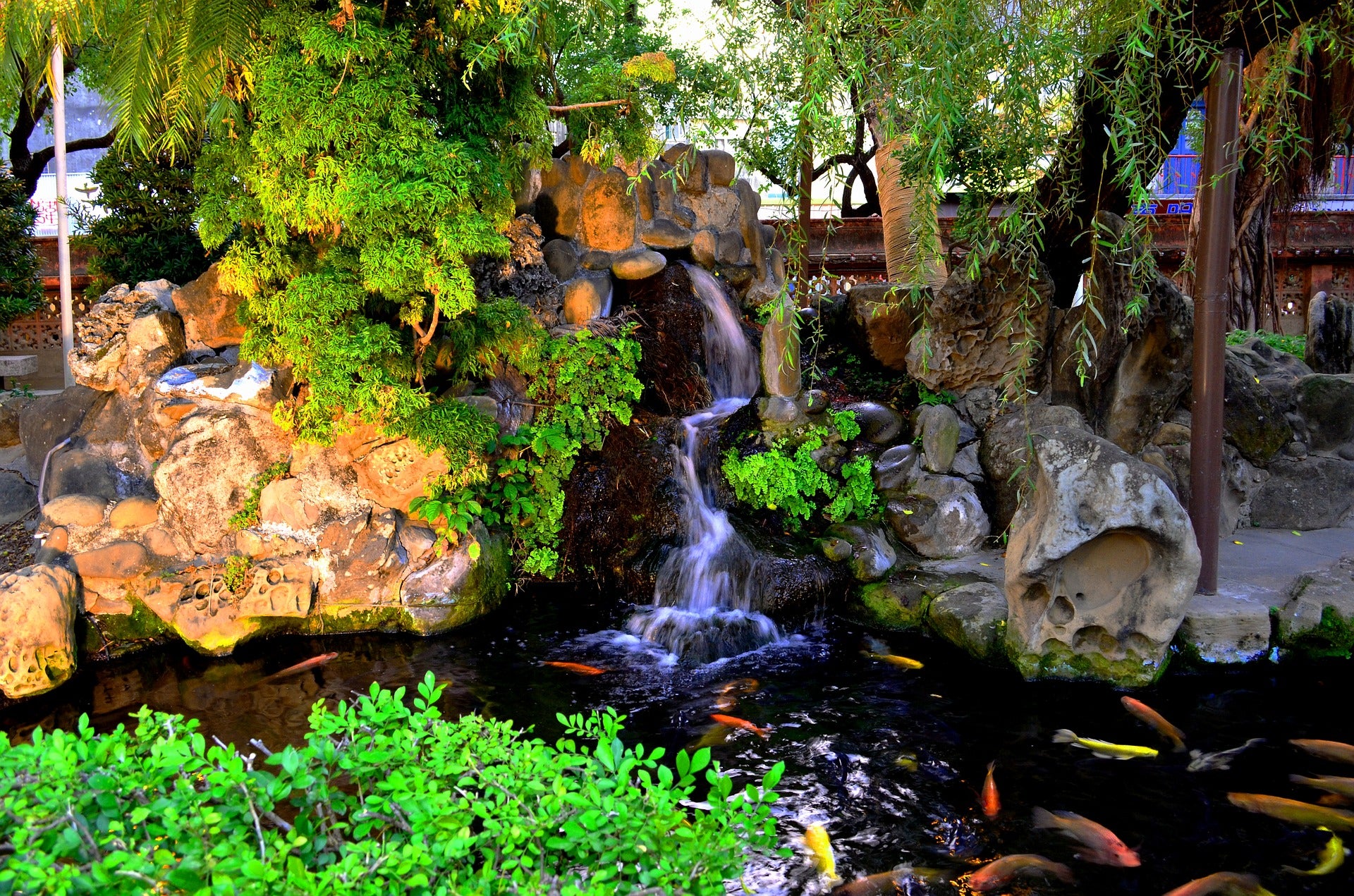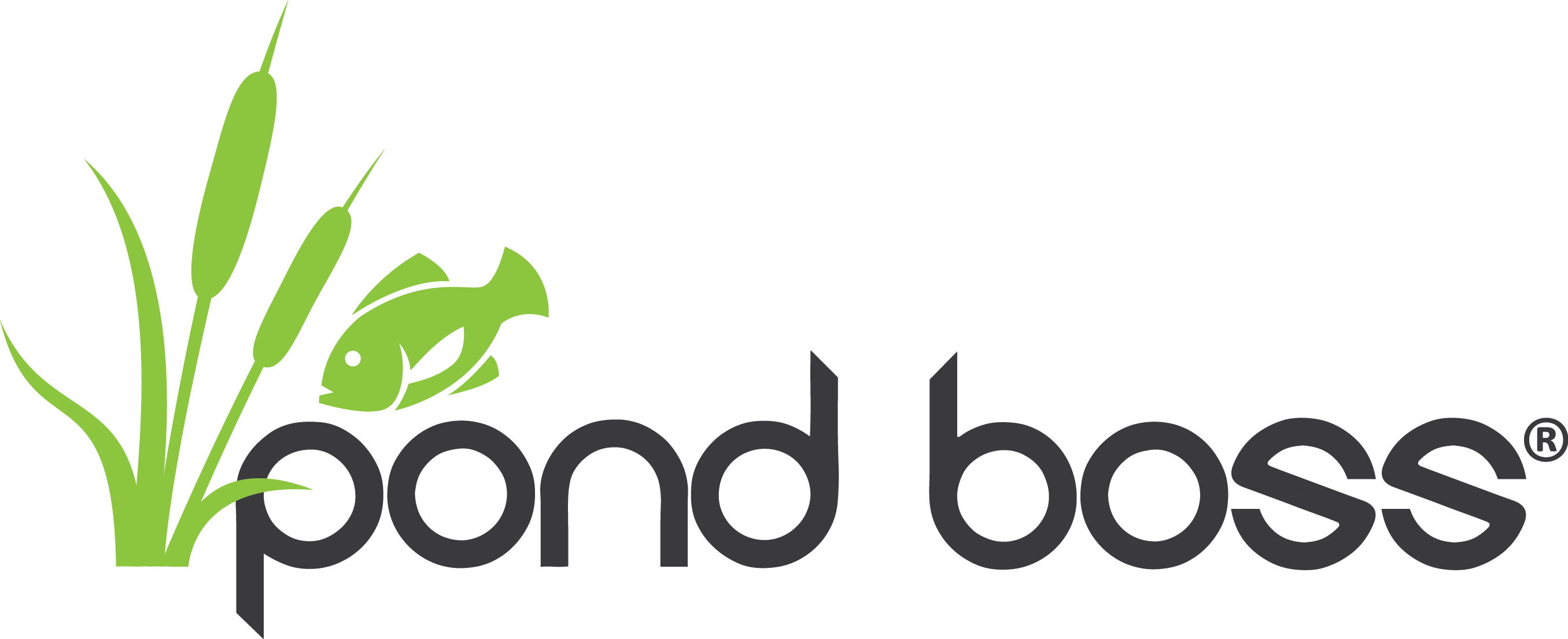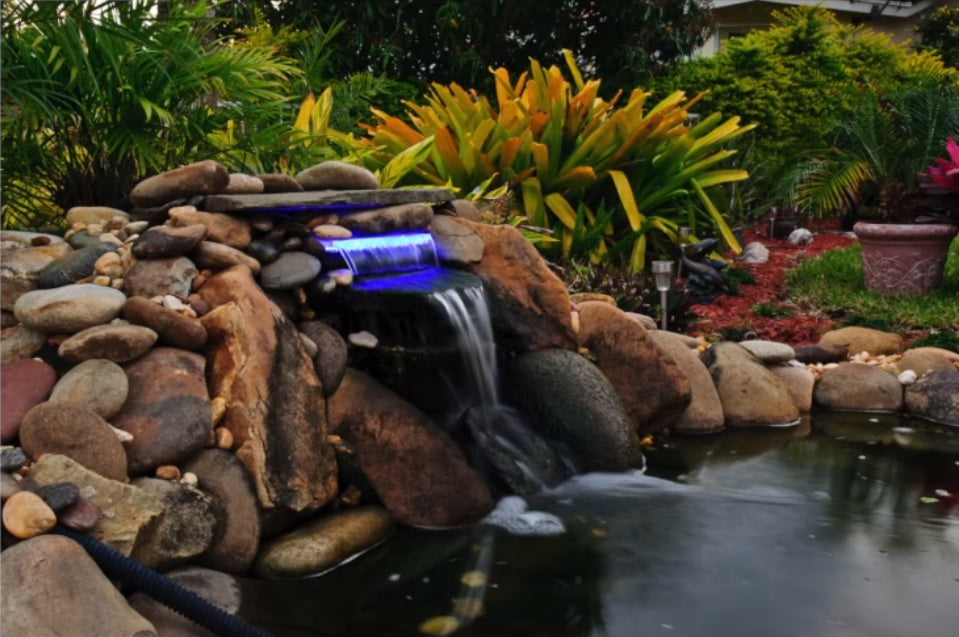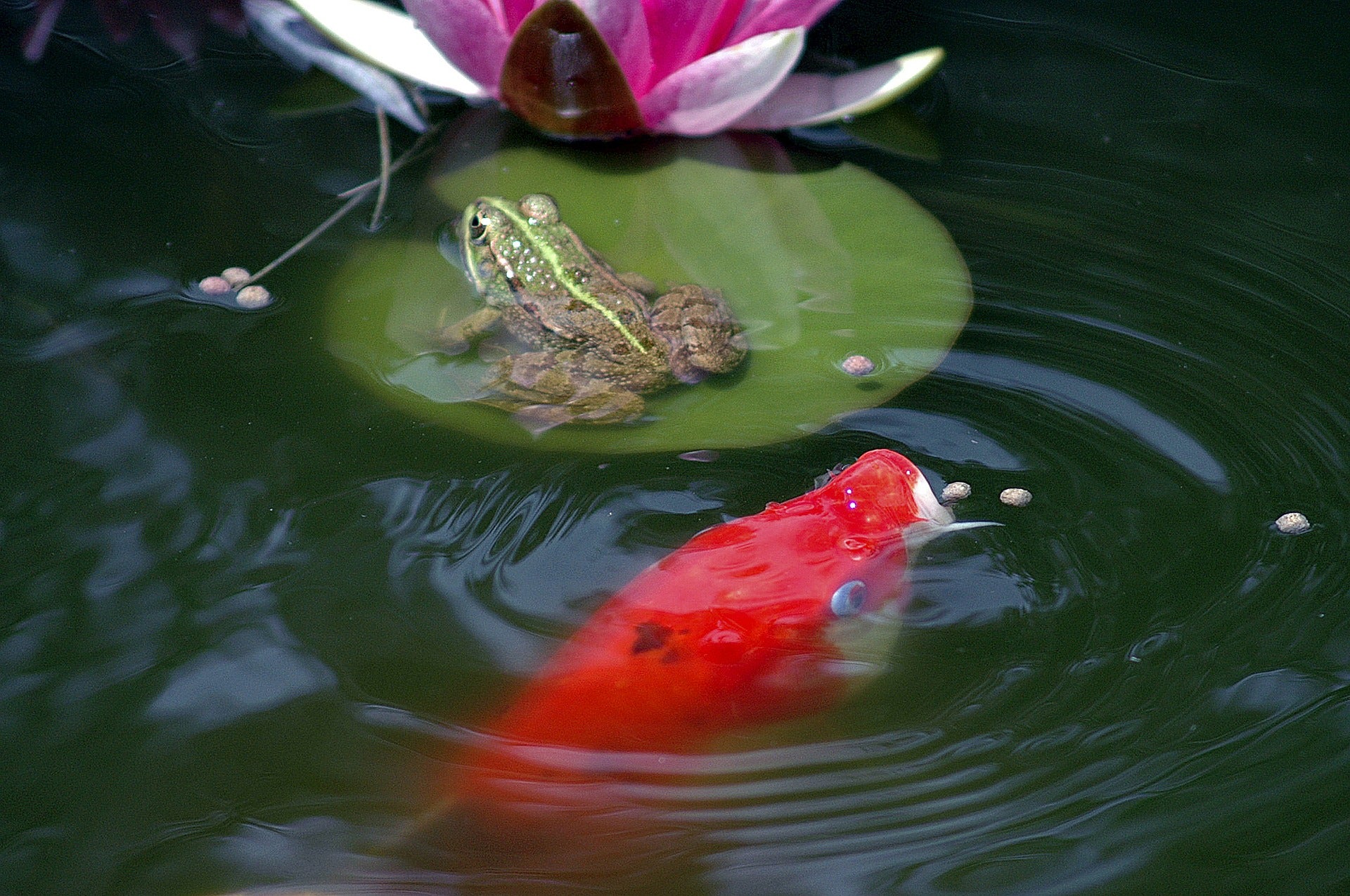
Adding fish to your pond can bring an added level of enjoyment from your pond. Fish bring beauty and excitement to what is already a focal point of your yard. Fish like any other pet bring some added responsibility, and here are our top 5 things to consider when considering adding fish to your pond.
Space
Is your pond large enough to support a healthy environment for fish? As a rule of thumb you want at least 10 gallons for every inch of fish. You will also want to account for growth. That while you may start with a koi that is 12 in. needing 120 gallons of water it could grow to be 25 in. within a few years and need 250 gallons of water. If you will have multiple fish, make sure to account for that in your calculation.
The other aspect of space is the depth of your pond. If you are adding goldfish you can have a pond that is at least 2 ft. deep, but if you will be having koi you will want your pond to be at least 3 ft. deep.
Aeration
Aeration is the key to making sure that your pond fish will be able to breathe. Fish rely on dissolved oxygen levels in the water breathe. Adding aeration to a pond can be simple with a
waterfall,
fountain nozzle, or aerator. If you notice fish gathering at the surface of the water opening and closing their mouths at times other than when you are feeding them, this is a good indication that you should add more aeration to your pond.
Filtration
Let’s face it. Fish add additional nutrient loads to your pond. As with any pet, we need to cleanup after them. For fish, cleaning up after them is having the proper support system of filtration. It is a good idea when picking out a filter to choose something that is rated a bit higher than your pond volume, as you can never add too much filtration. It is also good to consider a filtration system that includes a
UV Clarifier to reduce the need of using an algaecide in warmer months.
Weather
Weather is an important factor in the life of your fish pond. If you anticipate ice formation in winter or long summers, that can affect your fish. Cold winters that include the possibility of ice freezing over require both the depth of pond to keep fish safe from the whole pond freezing over, and an aerator or deicer to keep a small opening in the surface of the pond for oxygen to enter and toxins to escape. You may even have to overwinter fish indoors. If you anticipate long summers, it is good to have deeper sections of the pond that can remain cooler for fish to swim in. You can also add aquatic plants and pond tint to block sunlight from entering the pond and warming the water up too much.
Backup
Fish are relying on your to maintain a healthy environment for them. You already have the space, aeration, filtration, and weather accounted for, but you should be prepared with a backup for them if a problem arises. Have a backup tank. This can be helpful if you notice one fish is showing signs of sickness before it spreads to others and you are able to treat it separately. It can also come in handy for any extensive pond maintenance, or if you plan to bring your fish indoors for winter months. You should also have a backup
pump. This can be used in your tank or if the one in your pond needs to be serviced or maintained. Being prepared for a few potential problems will take away a huge portion of worry in an unlikely event.
Having pond fish can be a fun, rewarding hobby. Taking steps to be prepared make caring for your new friends simple. Take charge with pond boss!




